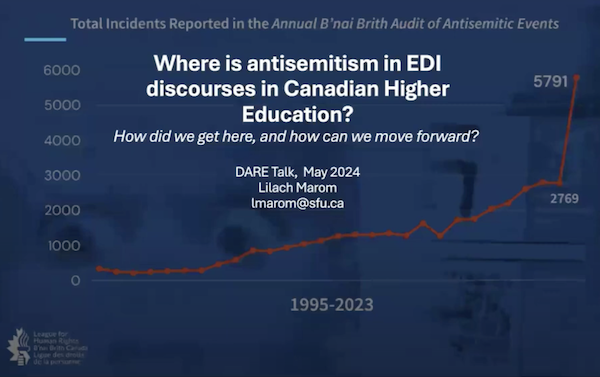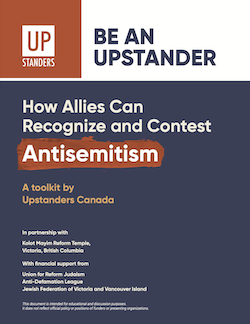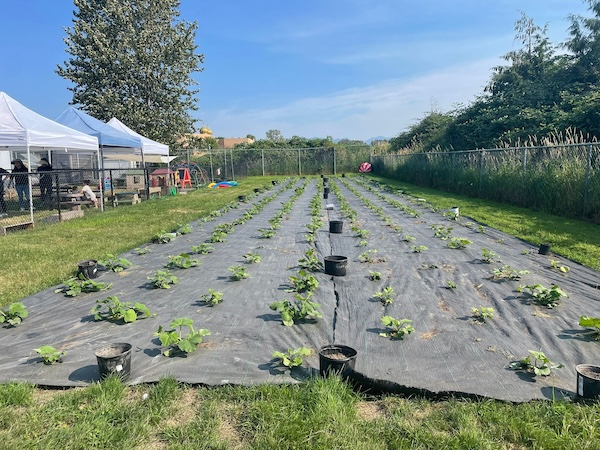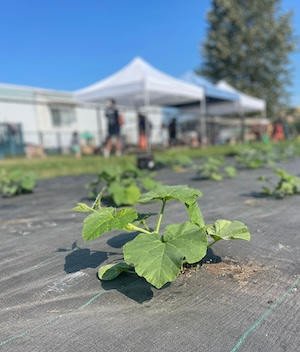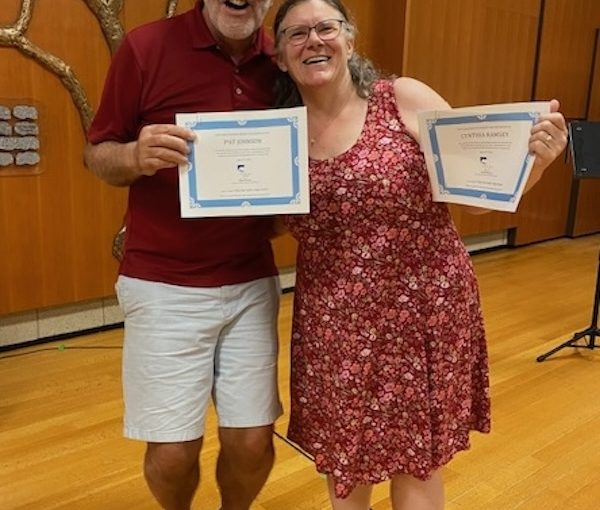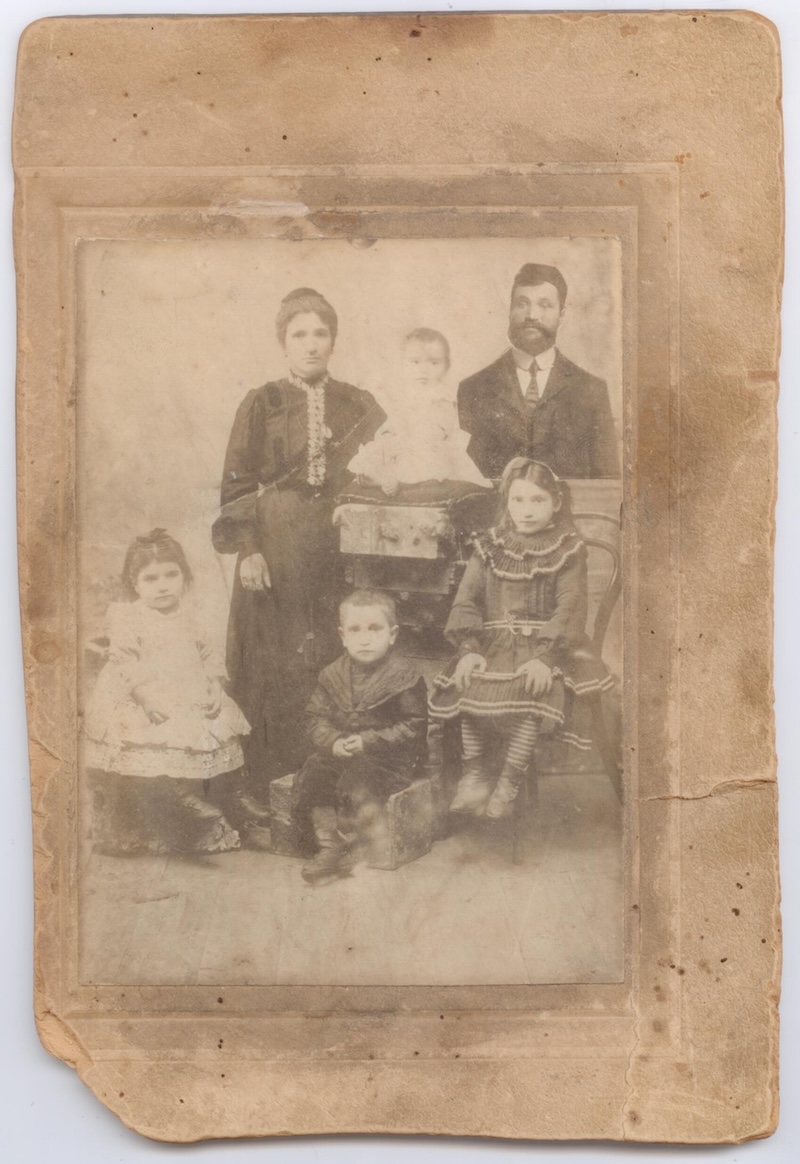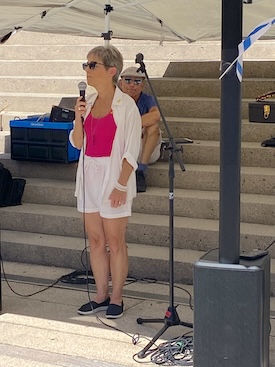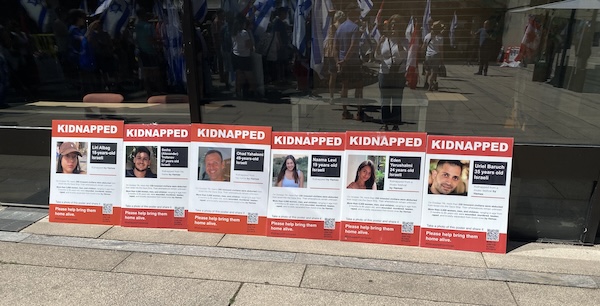Simon Fraser University assistant professor Dr. Lilach Marom gave a lecture May 27 called Where is Antisemitism in EDI Discourses in Canadian Higher Education? How Did We Get Here, And How Can We Move Forward?
Prevailing trends in equity, diversity and inclusion on campuses and elsewhere often exclude Jewish people and discount antisemitism, according to a Simon Fraser University academic.
Despite extensive policies around racism, discrimination and related topics, many universities and academic organizations have no explicit references in policy to antisemitism, says Dr. Lilach Marom, an assistant professor at SFU, who focuses on anti-racism and inclusion in education with a focus on structural and institutional barriers to access.
“When we look at references to antisemitism and Jewish identity across EDI policies and action plans, we see that there is not much reference,” she said during a lecture May 27 that was part of Diverse Approaches to Research in Education, a seminar series co-hosted by Faculty of Education’s Research Hub and the Research Advisory Working Group. For example, resources from the Canadian Association of University Teachers include a self-identification survey, but under the category of race and ethnicity, there is no option to select “Jewish.”
In addition to Jewish identity, the experiences of Jewish people with antisemitism are often not specifically addressed. “Sometimes, it is not named when there are other forms of oppression and racism that are named,” she said.
EDI stands for equity, diversity and inclusion (in the United States, Marom noted, it is reordered as DEI). Equity, she said, is the removal of systemic barriers and enabling all individuals to have equitable opportunity and access to benefit from higher education. Diversity is about the variety of unique dimensions, identities, qualities and characteristics individuals possess along with other identity factors. Inclusion is defined as the practice of ensuring that all individuals are valued and respected for their contributions and are supported equitably.
EDI has become the prevalent framework to address issues of social justice and equity in Canadian higher education, said Marom. Fully 90% of higher educational institutions in Canada reference EDI in their strategic planning and 91% have an EDI task force or are developing one, according to a Universities Canada survey of members in 2022.
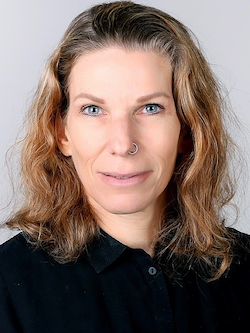
Marom sees a number of reasons why antisemitism is excluded. Antisemitism is often categorized as religious-based discrimination, which reclassifies it outside the realm of anti-racism.
“Jewish people see themselves as a people, which means they have shared culture, language, history, religious texts and rituals,” said Marom. “But, within the North American context, Jewishness is conceptualized as a form of religion.”
This is specifically the case in Canadian law, where antisemitism is categorized under religious discrimination and reported under hate crimes motivated by religion.
This creates a disconnect when it comes to EDI, said Marom. “In most cases, EDI typically does not centre on religious-based discrimination,” she said. “So those things are on the margins, they’re not core to the EDI discourses.”
Settler-colonialism and decolonization are core concepts in EDI discourse, which presents challenges around the way Israel and Palestine are considered.
“I’m worried about the new antisemitism that emerges at the intersection of anti-racism and settler-colonial discourses,” she said. “Both those discourses are insufficient and incomplete to understand Jewishness, the Jewish condition or the situation in Israel-Palestine.… They create this forced binary between Jewish people as the embodiment of white privilege and colonial oppression, and Palestinians as racialized and indigenous. I think this binary is not only inaccurate, it also feeds into new forms of antisemitism.”
Settler-colonialism is a leading framework for analyzing Canadian history, said Marom. Applying that framework to Zionism and the formation of Israel in a simplistic way overlooks the long and complex history of that land and creates a false dichotomy between Jewish people as the embodiment of oppression and Palestinians as indigenous, she said.
These constructions fail to acknowledge the historical, cultural and religious ties of Jews to the land dating back millennia. They also don’t acknowledge that there could be places in which there are coexisting claims to indigeneity in Israel-Palestine.
Meanwhile, the construction of Jews as white and privileged, she said, reflects a “legal and cultural whitening of Jews in North America.”
“This is not to ignore the fact that Jews definitely have gained some privileges from their ability to assimilate and integrate in this mainstream North American culture and those possibilities were not open to members of other racialized groups,” she said. “Jews have definitely gained some privileges from this ability. However, this also feeds into some antisemitic tropes or stereotypes – Jews as a ‘model minority’ or ‘super powerful’ – and have put them in a position that is not really in and not really out. These in-between spaces [mean] they can be targeted on one hand by conspiracies from the right like the Great Replacement Theory, but also pushed against from the left as an embodiment of white privilege.”
The construction of Jews as white overlooks the self-identification of Jewish people, she said, and it doesn’t recognize the diversity of Jewish people. While in North America many Jewish people are Ashkenazi, in places like Israel, the majority of people are from Asian, Middle Eastern and North African backgrounds.
“In critical discourses, we don’t talk about race as skin pigmentation nor as biological constructs,” Marom said. “We talk about it as a form of social construct. If you think about race as a social construct, looking at the history of Jewish people with marginalization, exclusion and genocide, they cannot be put aside from anti-racism discourses and be absorbed into whiteness.”
It is not useful, she said, to participate in “any form of oppression Olympics. But I think we need to acknowledge that antisemitism is not following the typical path of other racialized groups, where hopefully there is less exclusion and more integration with time,” she said. “With Jewish people, many times when they thought they were most integrated and most included, this is when they faced the most extreme forms of exclusion and marginalization.”
Marom clarified that discussion about antisemitism and the protection and safety of Jewish people should not be confused with “protection” from challenging ideas.
“We need to be willing to step into risky discussions,” she said. “But I think what EDI does is really talk about impact. It talks about how can we be engaging in those difficult spaces while still feeling that we are being seen as human, that we are included, that we have space. I speak only on my behalf [but] I think this is the case with many Jewish faculty that I know. I don’t think that this is the way many of us [have felt] since Oct. 7.”
There is a balance to be found between academic freedom and protection of minority communities, said Marom – but the approach to this balance when it comes to Jews and antisemitism seems different than in other cases.
“I just find it very peculiar that a lot of my colleagues who usually are very sensitive toward issues of inclusion and belonging all of a sudden become the strongest supporters of academic freedom when it comes to the issues of antisemitism,” said Marom. “Not that academic freedom is not important – it is really important – I’m just curious to hear how come it becomes so important now when the people in question are Jewish people.”
She also cited a seminar on antisemitism and anti-Zionism that was sponsored by about 40 organizations, most of them Muslim and Middle Eastern academic groups.
“This we would never see on other issues, in which people from the outside explained to people on the inside what they need to know about themselves,” she said. There were some Jewish speakers at the event, she noted, but they came from a very specific ideological perspective.
“I’m not saying that they are not legitimate,” she said. “I’m not even saying that they’re not important and I don’t think that we need to define who is in and who is out to speak on behalf of the Jewish people – there is enough space in the world to speak. But I am worried for the tendencies in progressive circles to adopt those voices and put them in and check the inclusion box, because that is not how we do inclusion in any other circles.”
The principle of “nothing about us without us,” the idea that no approach toward a group should be adopted without the full and direct participation of the affected people, should not be overlooked when it comes to antisemitism, she said.
A video of Marom’s full presentation is available at youtu.be/FQbGiySUetM.

